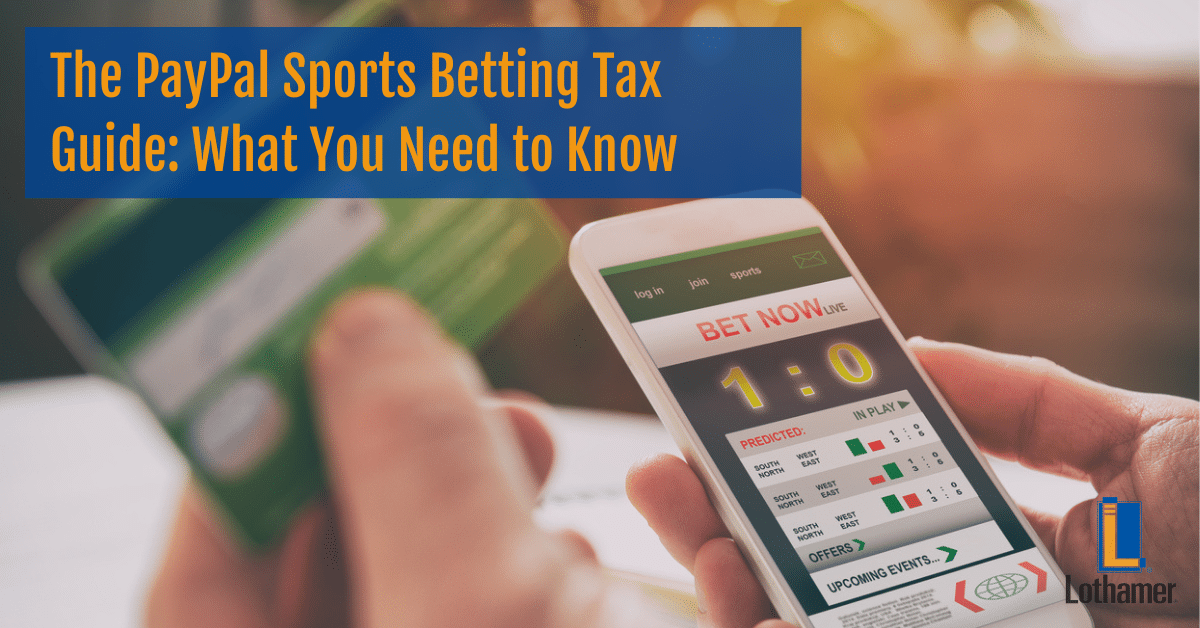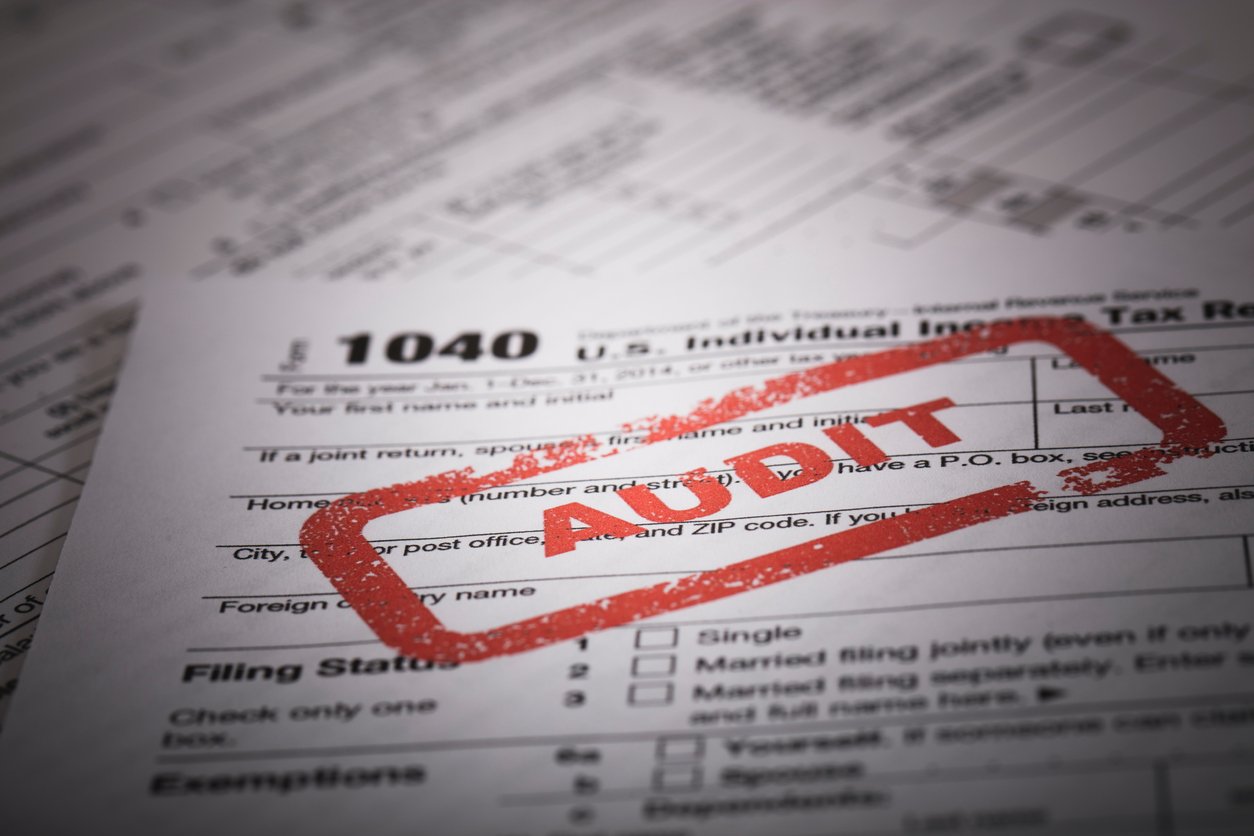
Sports betting is an explosively popular pastime in America today. Ever since the federal ban was lifted in 2018, sports betting has grown into a multibillion-dollar industry. The appeal is easy to understand—it brings together the thrill of gambling and the pride of skill and analysis (in case you were wondering, that’s how it’s legal in states where it is: it’s considered a game of skill, not of chance).
As the cherry on top, popular online sports betting apps have made it easier than ever to wager your money and collect winnings. These days, you can quickly connect an account through PayPal, Venmo, or other third-party payment apps, all in the name of convenience. But before you set it and forget it, there are some crucial things you need to know about how PayPal reports to the IRS that could bring some major headaches come tax season.
The PayPal Sports Betting Tax Guide for 2023
How Gambling Winnings Are Taxed
The IRS has always required you to pay taxes on gambling income, which is what any payout from sports betting is considered. That remains true of any winnings you receive, including but not limited to:
- Online sportsbook winnings
- Fantasy league winnings
- Raffles
- Lottery or sweepstakes prizes
- Mobile gambling
Depending on the type and amount of money won and the payer, you may receive a Form W-2G (Certain Gambling Winnings) or a Form 1099-MISC (Miscellaneous Income) during tax season. When you use a third-party payment app, however, you’ll get something called a Form 1099-K: Payment Card and Third Party Network Transactions.
Form 1099-K reports transactions from online platforms, payment card processors, and apps. These forms aren’t new in 2023, but a lot more people are expected to receive them this year than ever before.
What’s Changing?
Prior to this year, platforms like PayPal only had to send a report to the IRS when an account exceeded $20,000 and/or 200 transactions. Now, that threshold is set to drop dramatically.
In 2021, a new tax law was passed requiring 1099-Ks to be generated anytime a user receives $600 or more in payments on any one platform. That rule was delayed in December 2022 so that it would not apply to 2022 returns. However, it is set to be in effect for 2023 returns, which means the upcoming tax season could make filing feel like a gamble in its own right.
What’s the Problem?
The IRS isn’t taxing gambling winnings any more or any less than other forms of income. But the problem lies with confusion surrounding:
- What types of transactions will trigger a Form 1099-K and how they will be distinguished (payments for goods or services vs. personal payments to friends, etc.)
- The fact that PayPal only reports gambling winnings, not losses
That second factor is key to sports betters. Gambling winnings are considered taxable income, and therefore anything reported to the IRS will increase your total income. If you have offsetting losses, you will need to file itemized deductions—and if you don’t have enough itemized deductions to exceed the standard, then your losses won’t have any effect.
That’s not changing, but with an extra form involved, avoiding IRS red flags could get much harder.
Do Sports Betting Apps Report to the IRS?
Yes, if your net profit exceeds $600, online sports betting apps like DraftKings, FanDuel, and other popular organizations have a legal obligation to send you a Form 1099-MISC or W-2G. This is true no matter how you’re handling the financial side of things.
Now, PayPal Will Report, Too
Keeping meticulous records is important at any time gambling income is concerned. But if you use PayPal as a cashout option, it will consider each withdrawal as a form of income. Unlike the reporting that the sports betting organizers have to do, third-party vendors will not calculate or offset your losses. So what in reality is only a small number of winnings could look like a major increase in your total income for the year.
Even if you operate at a net loss, the IRS will only see the winning side of things. If you win $25,000 in various transactions over the year but then lose that same amount and break even, you’ll still have $25K of taxable income added to your adjusted gross income. This could have major effects on your eligibility for deductions, credits, and more.
Of course, the change in how and when third-party vendors send a report to the IRS shouldn’t theoretically change the legal amount of taxes that you owe. However, it could very easily trigger discrepancies in the system that the IRS doesn’t have the capacity or capability to sort through, leading to incorrectly inflated tax obligations. Because of that, these new rules could mean a significant increase in IRS audits, too.
What to Do If You Receive a Form 1099-K
You’ll have to be especially diligent about filing both the 1099-K you get from PayPal, Venmo, etc., and any W-2G or 1099-MISC forms you may receive from the sports betting platform. A lot of confusion is expected this year around getting taxed twice, determining whether or not you can or should itemize, and providing precise records to prove offsetting losses.
To prevent confusion, properly understanding and recording costs and losses is essential. But if you end the year with missing records or get hit with a massive tax debt that you can’t afford, contacting a licensed tax resolution professional is your best bet!
Get Help from a Tax Professional
Lothamer Tax Resolution Sets You Free® from overwhelming tax problems. Don’t roll the dice when it comes to the IRS. Instead, get professional, personalized, and powerful tax help from the experienced team at Lothamer. From audits to collections, we’ve seen and solved it all when it comes to tax problems!
Lothamer Tax Resolution: Serving Michigan, Indiana, Illinois, Wisconsin, Ohio, & Kentucky
At Lothamer Tax Resolution, we provide prompt, same-day tax help whenever and wherever it matters most. With offices throughout the Midwest, we’re the local team of licensed tax professionals you can truly rely on. Our services are transparent, honest, and always available, and all of our Enrolled Agents are either CPAs or tax attorneys. Text or call (877) 955-9020 or contact us online today to take back your future!
"*" indicates required fields




